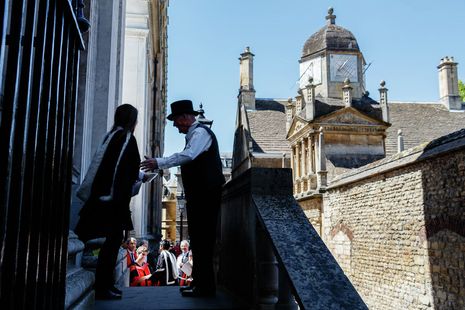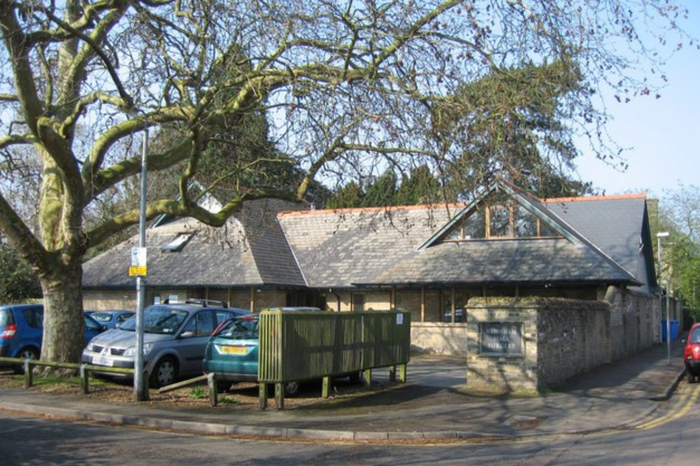Ex-VC Stephen Toope lobbied Government to conceal donations
The former Vice-Chancellor told the government of his ‘dismay’ at attempts to increase the transparency of University donations

Cambridge’s former Vice-Chancellor, Stephen Toope, told the government of his “dismay” at attempts to increase the transparency of University donations, according to a report by openDemocracy.
The report claims that Cambridge is “fighting to keep a list of its recent donors secret”, which the report alleges includes fossil fuel, tobacco, and arms companies.
It alleges that 24 Russell Group universities have covertly lobbied the government to conceal the identities of affluent foreign contributors. The investigation found that £281 million in anonymous donations has been taken by these universities since 2017.
The University has received between £25 million and £49.9 million in anonymous donations, but refused to provide openDemocracy with the exact amount. These donations went towards laboratories and a business school, the University of Cambridge said.
University of Cambridge officials have held private meetings with Government advisers to urge them to “keep their funding secret”, according to the report.
Former Vice-Chancellor Stephen Toope said that a proposed bill, brought to Parliament by MP Jesse Norman, to increase the transparency of oversea donations would “have a hugely damaging impact on our philanthropy”, in a letter to a government adviser.
“Many donors, especially those from countries that place emphasis on privacy as important, may feel that their giving is a private matter and expect high levels of donor privacy to be upheld by the institutions that they give to,” he said.
Toope expressed concerns that the university’s capacity for fundraising could be “severely impacted” unless the identities of foreign benefactors were kept confidential, alleges the report.
The University of Cambridge was unable to reveal a current, up-to-date list of its donors, Open Democracy has said.
One known donor, however, is Ukrainian oligarch Dmitry Firtash and his wife Lada who, according to reports, often visited Cambridge with a television crew and met with students benefiting from the scholarships he financed.
The University had given Firtash a medal for his philanthropy before he was arrested in 2015 on charges of “alleged international corruption conspiracy”. The University insists that it has not received any further funding from the family since 2013.
Other notable donors included the John Templeton Foundation, a contributor of millions of dollars to British right-wing organisations, and the Sackler family, who built their wealth on opioids.
The University has said that the family has not made any contributions since 2015 and any further donations would consequently not be accepted.
It has also rejected openDemocracy’s allegations, suggesting they “create a misleading picture about donations to Cambridge”.
A University spokesperson told Varsity that Cambridge does not “accept completely anonymous donations.”
“There will of course be donors, both large and small who wish their donations to be private – for safety reasons perhaps – and that is of course their right. But due diligence checks are carried out before donations are accepted, including those from donors who don’t wish to engage in publicity,” they said.
Conservative MP Robin Walker, who heads the education select committee in Parliament, told openDemocracy: “Universities are hugely important institutions and as they are in receipt of large amounts of public money it is beholden on them to be transparent about their other sources of funding.”
When asked to comment on their communication with the government on the matter, a spokesperson for the University said: “Our correspondence with the government about the amendment brought forward by Jesse Norman MP reflected widespread concern across the sector about the potentially damaging and unintended consequences of the proposed legislation”.
“As the correspondence itself said, we understand and support calls to ensure that universities carry out robust and diligent checks on overseas contributions, based on a clear assessment of risks,” the spokesperson continued.
 News / CUP announces funding scheme for under-represented academics19 December 2025
News / CUP announces funding scheme for under-represented academics19 December 2025 News / SU reluctantly registers controversial women’s soc18 December 2025
News / SU reluctantly registers controversial women’s soc18 December 2025 News / Cambridge welcomes UK rejoining the Erasmus scheme20 December 2025
News / Cambridge welcomes UK rejoining the Erasmus scheme20 December 2025 Features / Should I stay or should I go? Cambridge students and alumni reflect on how their memories stay with them15 December 2025
Features / Should I stay or should I go? Cambridge students and alumni reflect on how their memories stay with them15 December 2025 Film & TV / Timothée Chalamet and the era-fication of film marketing21 December 2025
Film & TV / Timothée Chalamet and the era-fication of film marketing21 December 2025










